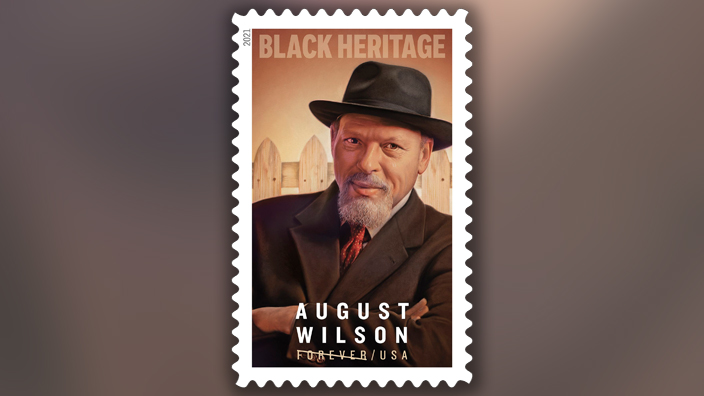Stages around the country may be shuttered at the moment, but you can still experience the artistry of playwright August Wilson, the latest Black Heritage stamp honoree.
Two new films on Netflix reflect Wilson’s legacy: “Ma Rainey’s Black Bottom,” an adaptation of his 1984 Broadway hit of the same name; and “Giving Voice,” a documentary about student actors involved in a national competition devoted to his monologues.
Monologues, in fact, are a Wilson hallmark — searing poetic soliloquies that have shaped his reputation as an American Bard.
A pivotal speech in “Ma Rainey’s Black Bottom” is delivered by the late “Black Panther” star Chadwick Boseman, who portrays an ambitious trumpeter in the screen version of Wilson’s dramatization of a 1927 recording session by real-life “Mother of the Blues” Ma Rainey (Viola Davis).
“These few minutes are the most gripping of the film,” wrote Chicago Tribune critic Chris Jones, who praised Boseman for “an astonishing, revelatory performance” made even more powerful because he gave it during his cancer battle that led to his untimely death last year at age 43.
Jones admires “Giving Voice,” too, as “a celebration of Wilson’s work and of the young people who strive to find themselves in his characters.”
In addition to chronicling the journey of high schoolers in the August Wilson Monologue Competition, launched two years after the playwright’s 2005 death at 60, also from cancer, “Giving Voice” features interviews with actors closely linked to his work — including Davis, Denzel Washington and Stephen McKinley Henderson.
In a critique for The Atlantic, Daniel Pollack-Pelzner observed: “The students find their own courageous voice onstage in speeches that play like earthy arias, revealing Black experiences in richly textured, everyday language.”
Through the interviews with professional actors, he added, “the documentary also insists on the universality of Wilson’s writing, putting him alongside Shakespeare as a poet of human experience.”
As Henderson says in the film: “August belongs to everybody.”
Share your feedback at uspslink@usps.gov. Your comments could be included in the “Mailbag” column.

